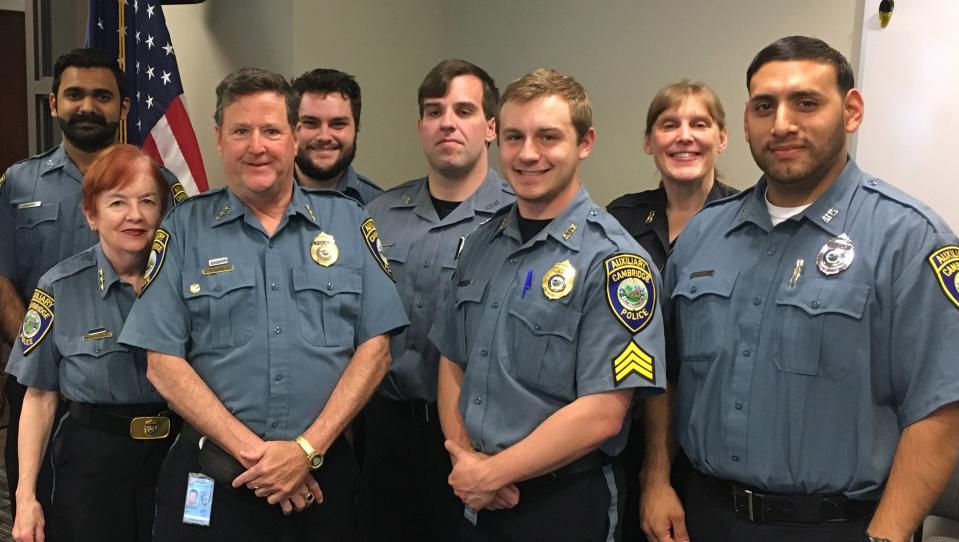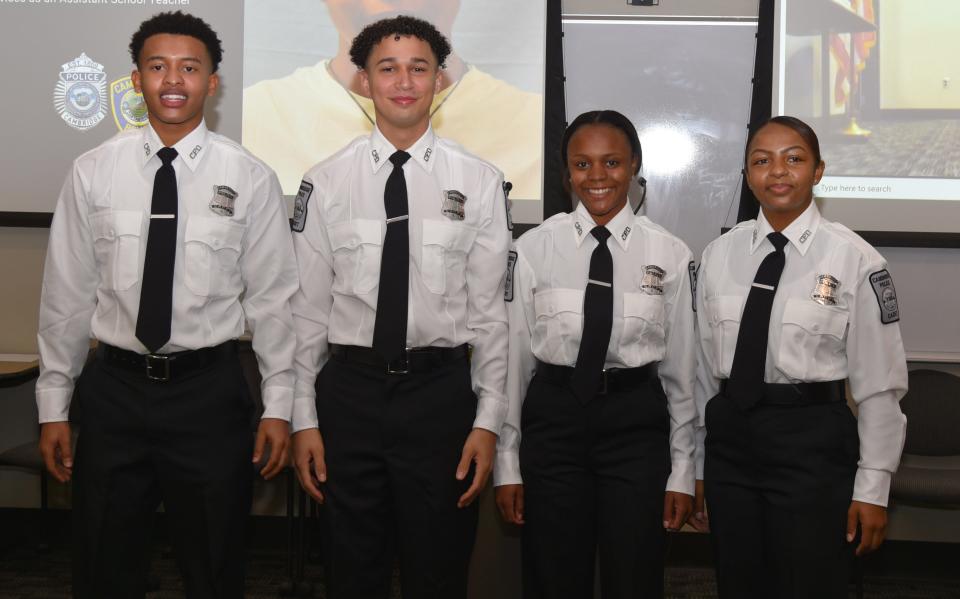MA Police volunteer/auxiliary squads may face extinction due to training troubles
Police reforms signed into law in December 2020 by Gov. Charlie Baker, came with unexpected consequences for some 3,600 men and women serving as auxiliary police officers in communities around Massachusetts.
Training requirements have changed with the passage of the Justice, Equity and Accountability Act, and with the changes, many members of this reserve force – called auxiliary, volunteer or special officers – will lose their chosen vocation.

“It’s not about completing extra hours of training,” said Marc Spigel, president of the Massachusetts Volunteer Law Enforcement Officer Association, the umbrella organization that supports the professional development of the volunteer group and facilitates training, recognition and services. “We have no arguments with the training requirements.”
The sticking point for many members is timing.
Trained to standards established in 1991-92, the new standards, set by the Municipal Police Training Committee (MPTC), add an additional 200 hours.
Auxiliary officers need more time
“Many of the trainings are scheduled at times when the auxiliary officers are working their primary jobs,” Spigel said. “The training is 96 hours online, and 120 hours hands-on. The committee claims they have scheduled night trainings, but these start at 3 in the afternoon.”
Spigel is confident members would complete the required training if it were offered at alternate times, on both weekend days, for example, and starting later in the evenings. He also suggested the officers be allowed to complete their requirements over longer periods of time.
More: Police officer shortages challenge departments
He believes the intent of the committee is to eliminate part-time people.
"We warned last year that auxiliary and reserve units would begin to disband due to the new regulations, and that is now happening in Abington, Belmont, Randolph, Southbridge, my hometown of Framingham and possibly Billerica," Spigel said.
Many of the affected communities rely on the auxiliary squads to augment full-time sworn officers when their populations increase: think summertime at the Cape. Or where municipal boundaries are far apart like in western Massachusetts. But not all municipalities have an auxiliary squad.
Bridge to a full police academy
The committee, responsible for training of all municipal law enforcement officers, has set up a special Bridge Academy for all those who perform as police, with the power of arrest, but who have not completed a full 800-hour police academy.
“The Municipal Police Training Committee is working diligently to advance the mandates established by the police reform law, including its primary objective of uniform training standards for all members of law enforcement,” said MPTC Executive Director Robert Ferullo.
More: Lack of seasonal police officers cancels annual Onset fireworks, notes town administrator
Ferullo said the MPTC created a Bridge Academy to deliver standardized training, and facilitate the new certification for officers who perform police duties and hold the power of arrest but have never completed a full-time police academy.
“To support officer convenience and access, the bridge program offers a robust online curriculum and flexible in-person class schedules held at multiple regional facilities,” Ferullo said.
Currently, some 900 reserve officers are enrolled in the Bridge Academy to fill in gaps between any prior training and the new uniform standards required by law for certification. The in-person training consists of 40 hours firearms, 40 hours of defensive tactics training and 40 hours of driving.
The Bridge Academy is offered free to qualified officers.
The MPTC has seven academies: Boylston, Plymouth, Randolph, Reading, Haverhill, Southbridge, and Springfield. In addition, the MPTC offers in-person, specialized training in a variety of locations, including but not limited to Ayer, Dalton, Edgartown, Grafton, Greenfield, Ipswich, Joint Base Cape Cod, Pittsfield, Medfield, New Braintree, and Yarmouth.
More: BB / pellet guns and air rifles can no longer be fired in Newton
In some communities, the squads are volunteer and unpaid, in others they enjoy arrest powers and receive part-time wages.
Framingham, where Spigel is an auxiliary officer, will disband the auxiliary squad at the end of June. Belmont has already shuttered its squad.
In Cambridge, the auxiliary squad has no arrest powers and is unarmed. They are called in to help with community events, directing traffic and tourists during road races, festivals and fairs.
“We’re in a unique situation,” said Jeremy Warnick, director of communications for the department. The city’s volunteer officer squad, about a dozen volunteers, is unarmed, unpaid and wears a distinctive light blue uniform. Their badges identify them as auxiliary police.
In recent years, the city has invested in a new cadet program, recruiting young adults, high school graduates, between the ages of 18-23 to the job of cadet. It’s a two-year paid program bridging the gap between graduation and the lowest age when someone can take the Civil Service examination.

In Somerville, retired officers are used to augment sworn personnel when needed to direct traffic, oversee construction sites and help out at community events. The officers are sworn in as specials and are paid by contractors or organizers of events.
This article originally appeared on wickedlocal.com: Auxiliary squads face 200+ more hours of training, some call it quits

